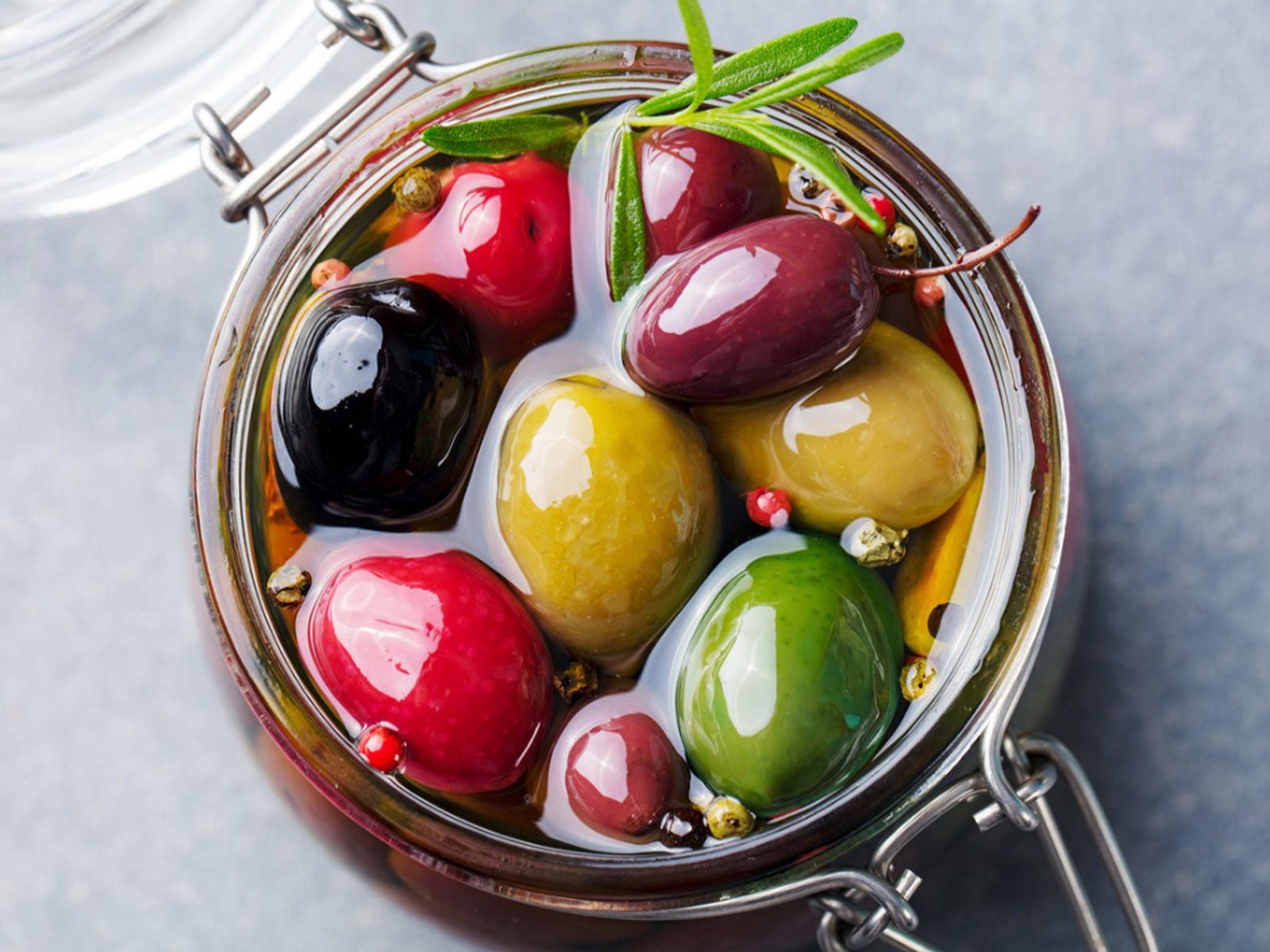Olive Preservation Guide: How Do You Brine Olives


Cured olives are a delicious snack or addition to recipes. If you are lucky enough to have an olive tree, you can make your own brined fruits. Preserving olives is an essential process due to the fruit's bitterness. There are many methods for curing olives, it just depends on what you prefer. You can learn how to preserve olives and eat your fruit year-round here.
Notes on Preserving Olives
Olive preservation is a centuries old tradition and the key to getting palatable fruit. The oleuropein makes them astringent and needs to be soaked out of the olives prior to eating them. This process can take days and requires a little patience.
The most common way to preserve this fruit is to brine olives, but it is not the only way. Brined olives are saltier than those cured with lye. You can also use a water or dry-salt method of curing olives.
If you want to brine olives, you add seasonings to the final brine before storage. Water cured olive preservation leaves a slightly bitter olive, but some people like them that way and the fruit is ready in a few weeks as opposed to other methods that take two to three months. Dry-salted olives are ready in five to six weeks but don't store as long as brined.
How to Preserve Olives
The most common method, brining, is time consuming but worth the effort. In order to brine olives, select good fruit and wash it. Mix a 1:10 solution of salt to water. Cut a slit in each olive. This will allow the oleuropein to leach out. Place olives in a bucket and layer with brine.
Cover the bucket with a lid and place it in a cool, low lit location. Stir the olives regularly and taste one after a couple of months. If still bitter, continue to store them.
When they are to your taste, drain them and lay them out on a towel to dry. Then soak them in vinegar for half a day to stop the fermentation. The olives are now ready to pickle.
Sign up for the Gardening Know How newsletter today and receive a free copy of our e-book "How to Grow Delicious Tomatoes".
Other Methods of Olive Preservation
You can make specialty olives, like cracked olives, which you smash with a flat knife prior to soaking in water. The water is changed frequently until the fruit reaches the desired flavor. Then cover them in brine with whatever seasonings are preferred.
Water-soaked olives can take as little as 7 days but up to 20 before they are ready to be brined.
Dry cured olives are best made with oil rich, large fruit. This is an easy process, requiring only pickling salt and a large slatted container. The salt will leach out the bitterness. It is a 1:2 ratio of salt to olives. Keep the container where the fluids can drain and temperatures are warm. These olives should be refrigerated for up to six months or frozen.

Bonnie Grant is a professional landscaper with a Certification in Urban Gardening. She has been gardening and writing for 15 years. A former professional chef, she has a passion for edible landscaping.